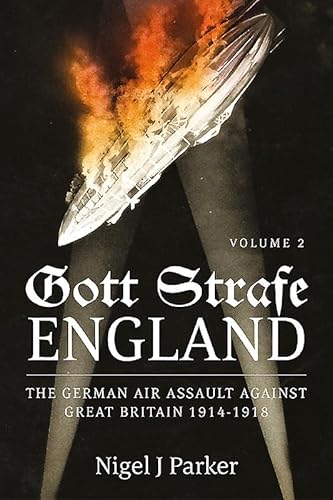
The original caption reads ' A merry party in a newly captured village. The above is from the National Library of Scotland. Image: But what of the sign that Stanley talked about in his letter? Could the following be what Stanley Fisher observed? Other signs were used as a backdrop as shown below: "God punish England" being the sign in the top and centre of this posed photograph. George Metcalf Archival Collection / CWM 19940078-032Īnother image of the slogan used is this - courtesy of 'Drakegoodman' on Flickrīavarian infantrymen from the 12th Infanterie Brigade use their breadbag straps to support their large M.87 type ammunition pouches. Source: Even Bruce Bairnsfather took up the theme: Creté used it in this illustration ('assed by censor ) Punch Magazine, July 1917. Copyright© Punch Limited Source: The phrase was taken up by the British and used in cartoons against the Germans, as seen below It was seemingly used 'officially' as seen in the postage stamp dating from 1915. The slogan comes from the German poet Ernst Lissauer who was also the writer of the poem Hassgesang gegen England ("Hate song against England"). The above image (courtesy of was taken in the village of Bucy-le-Long - this is near Soissons and miles away from Stanley's unnamed town.Īnother view of the same building is shown here - this time as a 'Stereoscopic' imageĪbove image courtesy of Ian Ference Brooklyn Stereographyīut where did the phrase originate? It would seem that Gott Strafe England ("May God punish England") was a slogan used by the German army during the First World War. Where was the town he describes? An internet search has revealed a number of possibilities We are now in action on the outskirts of a ruined village so we set to work, cleaned up a cellar and put a top on it, and there we are living for the time being.” In our journey through the villages we slept in holes or any sort of temporary shelter we could find. They are a nation aren’t they? The town we are in is one from which Fritz had made a hurried exit, otherwise I have no doubt he would have gutted it as he has done the villages, where he has blown the churches up. He had also written on the walls “Gott Strafe England”. We were billeted in houses but the dirty blighter had broken every piece of furniture in the place we occupied. The place has been in the hands of Fritz since the commencement of the war. The Bosche cleared out on the Saturday and we were the first British soldiers to enter the town at 10am so I do not think we did badly. In one French town the civilians gave us a cordial welcome and gave us either tea or coffee to drink and they declined to take any payment. All the main roads have been mined, we have been held up at times until large craters were filled up and the guns could pass along. “Most of the villages we have passed through have been gutted by the Germans and everything of value has been taken away. In this letter he describes the devastation caused by the Germans during their withdrawal to the Hindenburg Line: Less dangerously, but photographically more interesting they also left behind graffiti as described by Stanley Fisher who served in the 168th (Huddersfield) Battery RFA - part of 32nd Division. Following a 'scorched earth policy' they also reportedly cut down orchards and poisoned wells. The advance was not easy, the Germans left behind booby traps and other 'presents' that would today be termed 'IEDs' (Improvised Explosive Device). The 'withdrawal to the Hindenburg Line' of February 1917 enabled allied troops to occupy previously German-held towns and villages. Lanoe Hawker, VC: Pilot, Innovator and Inventor.The Cotton-Mill Worker, the Stockbroker and the Flammenwerfer: The 8th Battalion Rifle Brigade at Hooge.


FILM REVIEW : All Quiet on the Western Front.Tolkien’s “bitter winnowing” and the War Memorial at St.Addison Barnes Perrott Hadden MC - South Irish Horse in the First World War.Sussex Women at War: Iva Mary Harland and Fanny Amelia Kennaird.A bloody war or a sickly season: The East Yorkshire Regiment’s Regular Officers of August 1914 and the Great War.Hobkirk DSO as GOC 14 Australian Brigade, July 1916 Through a Glass Darkly: The Appointment of T/Lieutenant-Colonel C.J.'The Grave by the Roadside' : Remembering 2/Lt.
_george-wesley-bellows__27745.1558582967.jpg)
A Cockney Soldier and the Great War: Corporal William Charles Blumsom MM.


 0 kommentar(er)
0 kommentar(er)
